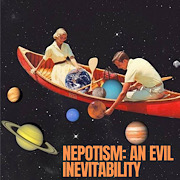|
MIGF thinks that all drug users, even non-addicts who don't harm anyone else, are subhuman scum. So nothing he says is going to make sense because his motivations when discussing this issue are entirely different than ours.
|
|
|
|

|
| # ? May 15, 2024 15:39 |
|
The_Book_Of_Harry posted:I'm not really sure what you mean by spending money on preventing people from becoming addicted. Everyone knows drugs are addictive and unhealthy.
|
|
|
|
To add the perspective of a UK doctor, over here we see far less prescription opioid abuse. Part of that is down to how we prescribe and part is down to our healthcare system. Firstly, we almost never use drugs like hydrocodone, hydromorphone or oxycodone. So Vicodin, Percocet, Dilaudid etc. are all practically unknown here. Our strong opioid of choice is morphine, available in either instant or slow release forms. Already that helps limit abuse, since we restrict the amount of instant release we give out and slow release morphine is unlikely to give anyone an enjoyable high. It also means that 'morphine allergy' is pretty drat rare, since a) people don't know that other opioids exists and don't get a chance to try them and b) we're very unlikely to give them anything else anyway. Secondly, prescribing anyone opioids for acute short-term pain outside of a hospital setting is just not part of the culture. While I've heard of people having wisdom teeth out in America getting buckets of Vicodin, over here you will get instructions to take OTC painkillers as needed. Ditto with any other surgery really, by the time you are discharged from hospital you are expected to be on codeine at the very most. Sending people home with morphine is very rarely done. Finally the healthcare system, being universal, is a bit more paternalistic. Since we have patients rather than customers, we care less about satisfaction scores and more about doing what we think is best. So refusing to give out drugs or do unnecessary tests is a lot easier, since patients can either take it or leave it. All that is great, but it's hard to see how America can really replicate any of it. It's probably a case of slowly trying to change prescribing habits over time to reduce the numbers of people exposed to strong opioids unnecessarily, but that does nothing to help existing addicts or get any of the drugs off the streets.
|
|
|
|
jabby posted:To add the perspective of a UK doctor, over here we see far less prescription opioid abuse. Part of that is down to how we prescribe and part is down to our healthcare system. There is, however, a serious benzo/z-drug addiction problem in the UK. Not enough to be an epidemic on the scale of the US Opis, but it's there.
|
|
|
|
Would instituting universal healthcare in the US have a positive impact in reducing the opioid crisis in America?
|
|
|
|
If it killed the 'customer' atmosphere of health care sure, but it's probably too far gone to walk back the idiocy of deciding the patient is always right. So we'll just keep throwing pills at people to keep them happy and avoid the inevitable bad customer experience that would otherwise occur if physicians actually forced patients to handle pain the difficult way instead of the quick addictive way.
|
|
|
|
Every country sees way less opioid abuse than America but we're starting to get our act together. It will get worse (or at least stay really bad) before it gets better, though.
|
|
|
|
Your Dunkle Sans posted:Would instituting universal healthcare in the US have a positive impact in reducing the opioid crisis in America? Depends upon the metrics used for promotion, doesn't it? If a doc who gives out a shitload of pills to white folk only, and neglects prescribing pain treatment to black folk, gets promoted faster than a doc who does the inverse regardless of case legitimacy, than one would think that universal healthcare would only worsen the opiate epidemic in America.
|
|
|
|
Your Dunkle Sans posted:Would instituting universal healthcare in the US have a positive impact in reducing the opioid crisis in America? My Imaginary GF posted:Depends upon the metrics used for promotion, doesn't it? Yeah, universal healthcare won't help the onset of something like this epidemic if yr doctors over-prescribe. Canada has universal healthcare and our epidemic is not as bad as America's but still pretty dire, especially in certain cities.
|
|
|
|
jabby: as a doctor, do you see Big Pharma in bed with prescribing doctors in the UK as much as we see in the US (i.e. giving away branded merchandise and sample pills, taking doctors out to dinner and lobbying, etc)? Do you get the same barrage of pharmaceutical commercials on TV? Having been to several countries in Europe and Asia, this seems to be primarily an American phenomenon.
|
|
|
|
Your Dunkle Sans posted:jabby: as a doctor, do you see Big Pharma in bed with prescribing doctors in the UK as much as we see in the US (i.e. giving away branded merchandise and sample pills, taking doctors out to dinner and lobbying, etc)? Do you get the same barrage of pharmaceutical commercials on TV? Having been to several countries in Europe and Asia, this seems to be primarily an American phenomenon. You can't advertise pharmaceuticals on TV in the UK as far as I know. Unless it's over the counter stuff. Prescription drugs are not advertised on TV at all here, it's kind of weird that you do it in America. You get what the doctor thinks you need, not what you want. And what's available is determined by what the NHS will buy, usually cheap out-of-patent stuff where possible.
|
|
|
Guavanaut posted:But not everyone who uses them becomes an addict. And plenty of people develop destructive addictions to things that are not chemical. So perhaps a better pathway would be looking for underlying causation rather than additional prohibition and anti-whatever messages. Well, if we're talking resource allocation, good luck with all that. Causes for addiction are as varied as causes for all form of discomfort from minor aches to full blown suicidal ideation. We would have to fix inequality, mental illness, cure boredom, fix families, improve social structures.........................and so on. And then people will still do drugs, if only because they can be loads of fun. The only real answer is found in the 3-part model of legalization, regulation and treatment. And it could pay for itself.
|
|
|
|
|
The_Book_Of_Harry posted:And then people will still do drugs, if only because they can be loads of fun. Most people who do drugs don't get addicted. Generally speaking relatively few recreational drug users turn into addicts. Heroin is kind of an exception but even things you associate with very high levels of addiction don't have them that high. Even cocaine users tend to not get addicted.
|
|
|
|
jabby posted:To add the perspective of a UK doctor, over here we see far less prescription opioid abuse. Part of that is down to how we prescribe and part is down to our healthcare system. I'm a person from the UK who emigrated to the USA. I had to have several surgeries last year. Each time I left hospital with a prescription for Percocet which I didn't use. I had painful and serious complications to the first surgery which caused the subsequent surgeries. I feel that my symptoms were actually missed because of the opiate obsession of the US healthcare system. When I complained of excessive pain, the doctor would only say "Pain is normal; take the Percocet." In fact it was not normal - my pain was caused by an abscess that developed in the wound. If I hadn't developed the abscess I would never have needed the huge bottle of pills I was given; there was very little pain at first. It was clearly just a routine - after every surgery you got a prescription for a big bottle of Percocet. Seriously, I could have kept constantly high for 5 days if I'd taken the pills according to the direction on the bottle. Over the course of 5 surgeries last year I have no doubt I could have been prescribed enough Percocet to develop a serious habit. I got a prescription for a large bottle every time (tore it up) and I'm certain that I could have got refills if I asked. It is no mystery to me how people in the USA get addicted. If they don't get surgery themselves, no doubt every elderly person's medicine cabinet has some forgotten opiate pills from past surgery left for curious young people to experiment with. The UK system is much better. I suppose people are probably in unnecessary pain after surgery for a couple of days in the UK, but what's 2 days of pain compared to a lifetime of addiction? (Please note, I'm not talking about chronic pain here, I'm just talking about excessive prescription of opiates after minor surgery.)
|
|
|
ToxicSlurpee posted:Most people who do drugs don't get addicted. Generally speaking relatively few recreational drug users turn into addicts. Heroin is kind of an exception but even things you associate with very high levels of addiction don't have them that high. Even cocaine users tend to not get addicted. Sure, this was never a point on which I disagreed. I've been in more than a few groups where a counselor/leader posed the question, "how many of you (by a show of hands) set out to become addicted?" I have yet to see a person raise her hand.
|
|
|
|
|
Your Dunkle Sans posted:jabby: as a doctor, do you see Big Pharma in bed with prescribing doctors in the UK as much as we see in the US (i.e. giving away branded merchandise and sample pills, taking doctors out to dinner and lobbying, etc)? Do you get the same barrage of pharmaceutical commercials on TV? Having been to several countries in Europe and Asia, this seems to be primarily an American phenomenon. It's not really an issue over here. As OwlFancier said you can't advertise prescription drugs on TV, so you get less patients coming to you asking for something specific. Pharmaceutical companies are also forbidden to give gifts to doctors (they can provide lunch during a talk, that's about it) and sample pills would be pointless when all prescriptions cost the same under the NHS. We do still get presentations from pharma companies pushing their new drug, but they tend to focus on the research and trying to demonstrate why it's better than what we're doing at the moment. And they do get quizzed at those about how much their drug costs, since we all feel a bit of responsibility to use the cheapest options where possible. BarbarianElephant posted:I'm a person from the UK who emigrated to the USA. I had to have several surgeries last year. Each time I left hospital with a prescription for Percocet which I didn't use. I had painful and serious complications to the first surgery which caused the subsequent surgeries. I feel that my symptoms were actually missed because of the opiate obsession of the US healthcare system. When I complained of excessive pain, the doctor would only say "Pain is normal; take the Percocet." In fact it was not normal - my pain was caused by an abscess that developed in the wound. If I hadn't developed the abscess I would never have needed the huge bottle of pills I was given; there was very little pain at first. It was clearly just a routine - after every surgery you got a prescription for a big bottle of Percocet. Seriously, I could have kept constantly high for 5 days if I'd taken the pills according to the direction on the bottle. The routine over here is that if a patient is still requiring strong opioids after their surgery, they probably aren't ready to go home. If it gets to a few days out and they are still requiring them, you need to ask what's going on. Even the pain from major surgery subsides surprisingly quickly if everything has gone well, so you don't get too many people complaining. I don't think people from the UK are any tougher than Americans, but maybe it has something to do with attitudes towards pain from healthcare staff? We try and brace people to expect some discomfort after their surgery, and I have heard various specialist nurses asking patients outright 'What level of pain (from 1-10) would you consider acceptable?' If they answer 'zero' then they get their expectations adjusted. Obviously we want people comfortable, but sometimes stuff is going to hurt and trying to get to absolute painlessness is unrealistic. EDIT: Actually since you mention it some surgeons are big fans of the idea that opioids make stuff harder to diagnose since they cover up the evidence. A valid point when you are dealing with post-op pain, but a lot of the old guard used to feel the same way about stuff like appendicitis to the point where they actually would complain if the patient got adequate pain relief. Thankfully we are getting over those 'too far the other way' attitudes. jabby fucked around with this message at 16:28 on Apr 7, 2016 |
|
|
|
OwlFancier posted:You can't advertise pharmaceuticals on TV in the UK as far as I know. Unless it's over the counter stuff. Prescription drugs are not advertised on TV at all here, it's kind of weird that you do it in America. And how does such a system prevent racial and class disparity in its healthcare provision? It doesn't; it institutionalizes discrimination. gently caress that bullshit.
|
|
|
|
My Imaginary GF posted:And how does such a system prevent racial and class disparity in its healthcare provision? It doesn't; it institutionalizes discrimination. gently caress that bullshit. How does universal healthcare help with class discrimination? Seriously?
|
|
|
|
It's a troll folks, use the ignore feature it's not that hard.
|
|
|
|
jabby posted:How does universal healthcare help with class discrimination? Seriously? Are you denying that doctors have bias, and that a system which emphasizes a paternalistic treatment of patients is more susceptible to practitioner bias than one which emphasizes a client-provider relation? Kelly M. Hoffman, Sophie Trawalter, Jordan R. Axt, and M. Norman Oliver. Racial bias in pain assessment and treatment recommendations, and false beliefs about biological differences between blacks and whites. PNAS, April 2016 DOI: 10.1073/pnas.1516047113
|
|
|
|
My Imaginary GF posted:Are you denying that doctors have bias, and that a system which emphasizes a paternalistic treatment of patients is more susceptible to practitioner bias than one which emphasizes a client-provider relation? I think Jabby's point is that physicians in the UK are less beholden to the "service industry" expectations of US doctors. I fight the good fight every day to appropriately treat pain however there's always the little devil on your shoulder saying "be a candy man! you'll save yourself tons of pages all hours of the days, your patients will be nicer to you, you'll get home sooner, and you'll get paid more because your CAHPS score will go up!" A UK style health care system removes a lot of that. There's a huge part of me that really hopes that the new FDA recs on no opioids for non cancer chronic pain somehow grows teeth. My life would be so much easier if I could just shrug my shoulders and say "nope, can't do that. It's illegal!" Bias wise, US physicians definitely treat different patients differently. I know that African American patients get way more urine drug screens then their white counterparts, or that they get less of the strong stuff. There's definitely a strong component of framing female patients as personality disorder related stuff too.
|
|
|
|
deathbysnusnu posted:Bias wise, US physicians definitely treat different patients differently. I know that African American patients get way more urine drug screens then their white counterparts, or that they get less of the strong stuff. There's definitely a strong component of framing female patients as personality disorder related stuff too. And my point is, in the NHS, such bias is amplified. We already have enough bias in client-practitioner relations as it stands in America, we don't need more by reverting back to the paternalistic methods of healthcare provision we used to have, we need less. I do agree that no opiates for non-cancer pain management would be a good regulation.
|
|
|
|
My Imaginary GF posted:And my point is, in the NHS, such bias is amplified. We already have enough bias in client-practitioner relations as it stands in America, we don't need more by reverting back to the paternalistic methods of healthcare provision we used to have, we need less. All of the bias I see is more or less subconscious on an individual provider basis. It's not doctors who swap white coats out for white sheets at home, just a general reflection our subconscious racial perceptions. Having a more top down approach to medical care won't result in adding for ethnicity and income bracket on the UDS algorithm.
|
|
|
|
Oh and whoever asked back a page or so why naltrexone isn't mandatory on release from rehab, it has some serious potential side effects. Naltrexone is not recommended if you have acute hepatitis or liver damage (which a lot of addicts have). It has a risk of opiod overdose due to an addict taking it using anyway and taking more and more of the substance to attempt to get high. If you are taking it and need to take a painkiller (like surgery or getting into a serious accident or something), it will interfere with that also. And finally it is not recommended for those with a history of depression or suicide attempts. All of these factors are pretty common for addicts, so a mandatory injection of naltrexone would hurt more than it would help. And those are just the big black box warning side effects. Its not a be-all end-all wonder drug.
|
|
|
|
My Imaginary GF posted:And my point is, in the NHS, such bias is amplified. We already have enough bias in client-practitioner relations as it stands in America, we don't need more by reverting back to the paternalistic methods of healthcare provision we used to have, we need less. I wouldn't necessarily say it was amplified. UK medicine may be more paternalistic, but in a more client-driven model you have the risk of providing worse care even if you are biased in favour of doing what the patient wants. Also the other forms of bias in the American system more than outweigh subconscious bias on the part of the doctor. Patients having different levels of insurance for example, or no insurance at all, influences the level of care they receive by a huge amount. Plus you can only be a good advocate for yourself in a client-driven model if you have the correct knowledge and skills, which again places more bias against traditionally disadvantaged groups who aren't able to advocate for themselves as well.
|
|
|
|
My Imaginary GF posted:And how does such a system prevent racial and class disparity in its healthcare provision? It doesn't; it institutionalizes discrimination. gently caress that bullshit. What? You can go to the doctor if you're black over here, and if you're poor. You just go, you get treated, you go home? Same as the rich people, although the rich people probably fork out the arse for private healthcare that still subcontracts back to the NHS for anything serious. Also, like, all our doctors are Indian or Pakistani. So I don't think they're going to be especially racist against anybody but white people.
|
|
|
|
It's almost as if MIGF isn't arguing in good faith 
|
|
|
|
deathbysnusnu posted:The difficulty is the frequent back and forth. If it's someone with say a fracture then they get the good stuff, and generally a lot more than what I would give a non addicted person (tolerance) and I'm ok with that. If it's someone with say a pneumonia, it will start with nursing paging me that they want something with pain. I'll order Tylenol. I get paged back later, the Tylenol isn't working, i'll give some naproxen. Page back that's not working. I explain no opioids. I get called in. Lots of anger directed at me, still no opioids. Often there's threats that they'll leave the hospital against medical advice unless they get the pain meds they want. I can attest to this from the nursing side. For some people, nothing is good enough unless it's IV and it has to be very specific. Dilaudid, phenergan, and benadryl iv. Never mind that phenergan iv is caustic poo poo that will tear up your tissue. But to add to that, usually if you are taking that much stuff, you will eventually run into complications which lengthens your stay and the longer you stay in the hospital, the longer your recovery tends to be. Add to that that many know that hospitals are trying to hunt down those high hcahps scores, them you have hospitals influencing the staff to do whatever it takes to get the patient what they want. There is a whole system based on kind of influencing patients to giving high scores. "We always will hourly round." We say my pleasure instead of you're welcome. I think some patients have picked up on that and some are gaming that. We are in the world where hospitals have patient liasons for the sole reason of increasing hcahps scores which those surveys by their nature are designed to reimburse as little as possible.
|
|
|
|
You know some people use the idea of being able to go to a hospital and order infinite drugs as an argument against universal healthcare. But I'm beginning to see why they might think that if you can actually go and do that in America... Are American hospitals like... some sort of weird unlimited chemist that also offer surgery and beds? Who the gently caress just goes into a hospital and asks for drugs? I literally cannot get my head properly around the idea that you can just buy medical services in America even if you don't need them.
|
|
|
|
People love their opioids. I do diagnostic imaging and I see an awful lot of people with 'fibromyalgia'. I would be surprised if any one of my patients in my entire career that has told me they have fibro genuinely has it. I also get people telling me what drug and strength they want while I'm bringing them back for xrays of whatever 'injury' that brought them to the ED. It's astounding how brazen people will be.
|
|
|
|
OwlFancier posted:You know some people use the idea of being able to go to a hospital and order infinite drugs as an argument against universal healthcare. Oh, you're just adorable. You think the only broken parts of the United States health care system are cost and access. Silly. Everything about US healthcare is broken. Everything It's always fun visiting a third world country and talking to locals. Every time the topic comes to healthcare, and I get to listen to someone complain about their horrible experience trying to get care while visiting the US, and why can't you just go to a doctor and a pharmacist and get what you really need to get better like it is here? And all I can do is 
|
|
|
|
jabby posted:It's not really an issue over here. As OwlFancier said you can't advertise prescription drugs on TV, so you get less patients coming to you asking for something specific. Pharmaceutical companies are also forbidden to give gifts to doctors (they can provide lunch during a talk, that's about it) and sample pills would be pointless when all prescriptions cost the same under the NHS. We do still get presentations from pharma companies pushing their new drug, but they tend to focus on the research and trying to demonstrate why it's better than what we're doing at the moment. And they do get quizzed at those about how much their drug costs, since we all feel a bit of responsibility to use the cheapest options where possible. I think a big reason why things go the opposite direction in the US (i.e. Less time in hospital, more prescription pills provided, etc) is because each day spent staying in a hospital is massively expensive for the patient and it's better to get them out of the hospital as soon as possible and everyone knows it. There isn't the same obligation to reduce prescriptions to the cheapest alternative possible as you describe by comparison.
|
|
|
|
RE: NHS and opiods, how do you guys deal with chronic pain? Most the addicts I see aren't hooked after a surgery, unless it's for a painful back surgery. Most are chronic pain sufferers whose actual chronic pain has been muddled with withdrawal symptoms.
|
|
|
|
Famethrowa posted:RE: NHS and opiods, how do you guys deal with chronic pain? We try and avoid opioids for chronic pain where we can, but obviously they are still used, mainly for things like back pain and arthritis. We stick to just using slow release morphine though, which I gather is nowhere near as much fun as the various flavours of opioid preferred in the US. Certainly you don't see many people hooked on the stuff and asking for more. Also in terms of things like fibromyalgia we can be a bit stricter with patients and just tell them the evidence doesn't support opioids for their condition (which it doesn't). Some places are doing good things with 'fibro clinics' where patients can access a rheumatologist, a psychologist and a chronic pain specialist all at the same appointment.
|
|
|
|
Sickle cell is one of the biggest reasons people come in for pain on my floor and since it's primarily an African disease, you know how that turns out. But yeah, many people's expectations of pain relief is unrealistic. And it gets to be a problem when it comes to weaning them off to oral medications because many just straight up refuse to take them and of course in the name of customer satisfaction, hospitals are willing to oblige them and give the pt what they want. But the research shows that hospitals with the highest pt satisfaction score have some of the worst pt outcomes.
|
|
|
|
Rigged Death Trap posted:There is, however, a serious benzo/z-drug addiction problem in the UK. Not enough to be an epidemic on the scale of the US Opis, but it's there. There is a problem with GABA interactions in general; alcoholism is stunningly widespread, and your average UK drinker consumes alcohol like someone with a problem in North America. For a long time the treatment for alcoholism was diazepam and zopiclone to deal with the insomnia; I imagine there's a certain degree of co-morbidity there.
|
|
|
|
blackguy32 posted:Sickle cell is one of the biggest reasons people come in for pain on my floor and since it's primarily an African disease, you know how that turns out. But yeah, many people's expectations of pain relief is unrealistic. And it gets to be a problem when it comes to weaning them off to oral medications because many just straight up refuse to take them and of course in the name of customer satisfaction, hospitals are willing to oblige them and give the pt what they want. Sickle cell is one of those things where I just ask the patient what they want for pain and if it's not criminally dangerous I give it to them. The notion that someone can have crippling pain episodes for their entire lives and NOT get a dependence or high tolerance is pretty crazy to me. Always bugged me in residency when people would talk poo poo about them being addicts. You wouldn't hold up half as well in their shoes.
|
|
|
|
deathbysnusnu posted:Sickle cell is one of those things where I just ask the patient what they want for pain and if it's not criminally dangerous I give it to them. The notion that someone can have crippling pain episodes for their entire lives and NOT get a dependence or high tolerance is pretty crazy to me. Always bugged me in residency when people would talk poo poo about them being addicts. You wouldn't hold up half as well in their shoes. I am always cautious of pseudo-addiction. If someone is in pain then of course they are going to ask for painkillers, and branding them addicted unless they show a distinct pattern of harmful use is like saying a diabetic is addicted to insulin.
|
|
|
|
The really depressing thing about chronic opioids is that they don't even seem to work. Sure in the short term they'll help manage people's pain, but chronic usage of high dosage opioids just gives you a truckload of side effects and marginal efficacy at best. Drug tolerance and opioid induced hyperalgesia in the long run seems to just result in miserable patients reporting the same high levels of pain and low levels of functionality that they would have had without the high dose opioids, except with the added benefit of adverse effects and substance dependence. I don't doubt that a lot of patients have awful pain, it's just that giving them chronic high dose narcotics is going to do them a lot more harm than good.
|
|
|
|

|
| # ? May 15, 2024 15:39 |
|
Asproigerosis posted:People love their opioids. I do diagnostic imaging and I see an awful lot of people with 'fibromyalgia'. I would be surprised if any one of my patients in my entire career that has told me they have fibro genuinely has it. I went to a college with a girl who had a pretty godawful case! Stemming from something like a back injury - I don't recall the details anymore, just that it cleared up real unexpectedly after something unfucked the actual physical nervous system. To probably her ultimate benefit, she also was contraindicated for opioids, so while dealing with her fibro was pure hell at least she came out of it unaddicted to anything.
|
|
|































